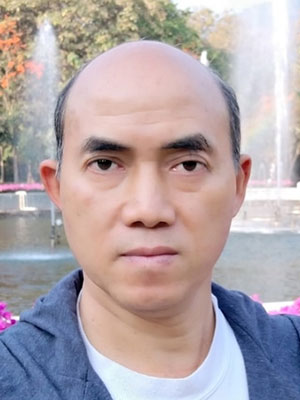Keynote
This year’s keynote speaker is Prasit Leepreecha, Ph.D. Leepreecha is an Associate Professor in the Department of Social Science and Development, Faculty of Social Sciences, Chiang Mai University. He earned his Ph.D. in Cultural Anthropology from the University of Washington, Seattle, in 2001. His research interests include Hmong and other ethnic minorities in Mainland Southeast Asia, with a focus on ethnic tourism, indigenous peoples’ responses to national formation and development projects, and ethnic responses to globalization. He has numerous publications in the English and Thai languages, including “Transnational Indigenism in Southeast Asia” in Regional Identities in Southeast Asia (2023), “Transnational Hmong Protestant evangelism in Mainland Southeast Asia,” in Ethnicity and Religion in Southwest China (2021), “Becoming Indigenous Peoples in Thailand” in the Journal of Southeast Asian Studies (2019), and ศิวิไลซ์ข้ามพรมแดน: การเผยแพร่ศาสนาของม้งโปรเตสแตนต์ในเอเชียอาคเนย์ (2559/2016). He is co-editor of Picturing Highlanders: A Half-Century of Photography in Northern Thailand (2013), Challenging the Limits: Indigenous Peoples of the Mekong Region (2008), and Living in a Globalized World: Ethnic Minorities in the Greater Mekong Subregion (2008).
Leepreecha will deliver the keynote address in a hybrid format (in-person and virtually on Zoom) starting at 12 p.m. U.S. Central Time on Friday, October 20.
Register for the online component of the address
Keynote Address Title: “Empowering the Margins: The Roles of NGOs among Ethnic Highlanders in Thailand”
Abstract: More than ten highland ethnic groups reside in north Thailand. These groups include some one million people. Generally referred to as “hill tribes,” these groups have long been perceived as primitive and dangerous others. Since the late 1950s, the Thai government began launching development programs geared towards solving the “hill tribe problem.” These top-down development programs have generally resulted in a situation where ethnic highlanders have become Thai at the cost of losing their ethnic identities. In addition, many ethnic highlanders continue to lack equal rights to citizenship, land ownership and management, educational opportunities, and other basic infrastructures. More recently, ethnic highlanders have developed their own grassroots movements to better address their situations and empower themselves. A number of non-governmental organizations (NGOs) initiated by both outsiders and young ethnic leaders have played an important role in the development and advancement of these grassroots movements. In this talk, I discuss the historical development and roles of NGOs among ethnic highlanders in north Thailand throughout the past five decades. I argue that, in contrast to state agencies, NGOs have played crucial roles in empowering ethnic highlanders in the country. Apart from linking up with regional and international indigenous movements, a number of young highland ethnic leaders with NGO backgrounds have recently become elected members of Thailand’s House of Representatives where they aim to continue their efforts to bring awareness of their issues and concerns to the general public and national policy makers.

Contact
Please send general inquiries to:
Micah Morton, Ph.D.
Chair, NIU Thai Studies Committee
mmorton1@niu.edu